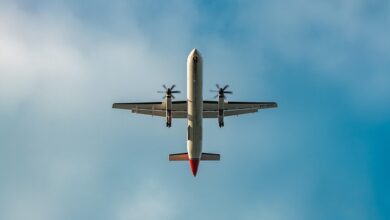Ultimate Guide to Staying Safe While Traveling

Traveling is one of life’s most enriching experiences, offering opportunities to explore new cultures, meet fascinating people, and create unforgettable memories. However, with the excitement of adventure comes the responsibility of ensuring your safety. Whether you’re embarking on a solo trip, traveling with family, or exploring unfamiliar destinations, staying safe should always be a top priority. In this comprehensive guide, we’ll cover essential tips and strategies to help you stay secure, healthy, and prepared while traveling.
1. Pre-Travel Preparation: Plan Ahead for Safety
Research Your Destination
Before booking your trip, take time to research your destination thoroughly. Understanding local customs, laws, and potential risks will help you avoid trouble and blend in seamlessly.
- Check Travel Advisories: Websites like the U.S. Department of State or UK Foreign Office provide up-to-date safety information about countries worldwide.
- Learn Local Laws: Some actions that are acceptable in your home country may be illegal elsewhere (e.g., dress codes, photography restrictions).
- Understand Cultural Norms: Respecting local traditions can prevent misunderstandings and ensure a smoother experience.
Get Travel Insurance
Travel insurance is a non-negotiable aspect of safe travel. It provides financial protection in case of emergencies such as medical issues, flight cancellations, or lost belongings.
- Look for policies that cover medical evacuation, theft, and natural disasters.
- Ensure your policy aligns with the activities you plan to engage in (e.g., adventure sports).
Create an Emergency Plan
Prepare for the unexpected by creating a contingency plan:
- Share your itinerary with trusted friends or family members.
- Save emergency contact numbers, including local authorities and your embassy.
- Keep digital copies of important documents like your passport, visa, and insurance policy.
2. Packing Smart: Essentials for Safety
Health and Hygiene Supplies
- First Aid Kit: Include band-aids, antiseptic wipes, pain relievers, and any prescription medications.
- Hand Sanitizer and Masks: Especially useful in crowded areas or regions with limited healthcare access.
- Water Purification Tools: Portable filters or purification tablets ensure safe drinking water in remote locations.
Security Gadgets
- Money Belt or Hidden Pouch: Keeps valuables secure and out of sight.
- Portable Door Lock: Adds an extra layer of security to hotel room doors.
- Personal Alarm: A small device that emits a loud noise to deter attackers or draw attention in emergencies.
Tech Accessories
- Power Bank: Ensures your phone stays charged for navigation and communication.
- VPN App: Protects your online activity when using public Wi-Fi networks.
- Offline Maps: Download maps for areas without reliable internet connectivity.
3. During Your Trip: Staying Alert and Secure
Transportation Safety
- Use Reputable Services: Opt for licensed taxis, rideshare apps, or pre-booked transfers instead of unmarked vehicles.
- Avoid Night Travel: Stick to well-lit, populated routes if you must move after dark.
- Keep Valuables Concealed: Don’t flash expensive jewelry, electronics, or large sums of cash.
Accommodation Tips
- Choose Safe Lodging: Stay in hotels or hostels with good reviews, 24/7 reception, and secure entry systems.
- Inspect Your Room: Check locks, windows, and fire exits upon arrival.
- Lock Valuables: Use the hotel safe for passports, money, and other essentials.
Stay Aware of Your Surroundings
- Blend In: Dress modestly and avoid standing out as a tourist.
- Trust Your Instincts: If something feels off, remove yourself from the situation immediately.
- Limit Alcohol Consumption: Excessive drinking can impair judgment and make you vulnerable.
4. Health and Wellness: Prioritize Self-Care
Food and Water Safety
- Eat Cooked Foods: Avoid raw or undercooked dishes, especially in developing countries.
- Drink Bottled Water: Always check seals to ensure authenticity.
- Be Cautious with Street Food: While tempting, street food can pose hygiene risks unless prepared cleanly.
Stay Physically Active
- Walking tours and outdoor activities not only enhance your experience but also keep you fit and energized.
- Stretch regularly during long flights to prevent deep vein thrombosis (DVT).
Manage Stress
- Practice mindfulness techniques like meditation or journaling to cope with travel fatigue.
- Maintain a routine similar to your daily life, such as consistent sleep patterns and meal times.
5. Handling Emergencies: Be Prepared for the Unexpected
Medical Emergencies
- Know Where to Go: Identify nearby hospitals or clinics before arriving at your destination.
- Carry Medications: Bring enough medication for the duration of your trip, plus extras in case of delays.
- Learn Basic Phrases: Knowing how to ask for help in the local language can be invaluable.
Lost or Stolen Belongings
- Report Immediately: Notify local police and your embassy if your passport or wallet is stolen.
- Backup Documents: Access digital copies stored in cloud services to facilitate replacements.
Natural Disasters
- Stay Informed: Monitor weather updates and follow official guidelines during hurricanes, earthquakes, or other events.
- Have an Exit Strategy: Know evacuation routes and emergency shelters in advance.
6. Digital Security: Protect Your Information
Secure Your Devices
- Enable two-factor authentication on all accounts.
- Use strong, unique passwords for banking and social media platforms.
- Encrypt sensitive files stored on your laptop or phone.
Beware of Scams
- Phishing Attempts: Be cautious of emails or messages asking for personal information.
- Fake Wi-Fi Networks: Hackers often set up rogue hotspots to steal data; verify network names with staff.
Social Media Caution
- Avoid posting real-time updates about your location, as this can alert burglars to your absence.
- Wait until you return home to share photos and stories.
7. Special Considerations for Different Types of Travel
Solo Travelers
- Join group tours or connect with fellow travelers to reduce isolation.
- Let someone know your daily plans and check in regularly.
Family Travelers
- Pack kid-friendly snacks and entertainment to minimize stress.
- Teach children how to identify safe adults (e.g., uniformed officials) in case they get separated.




